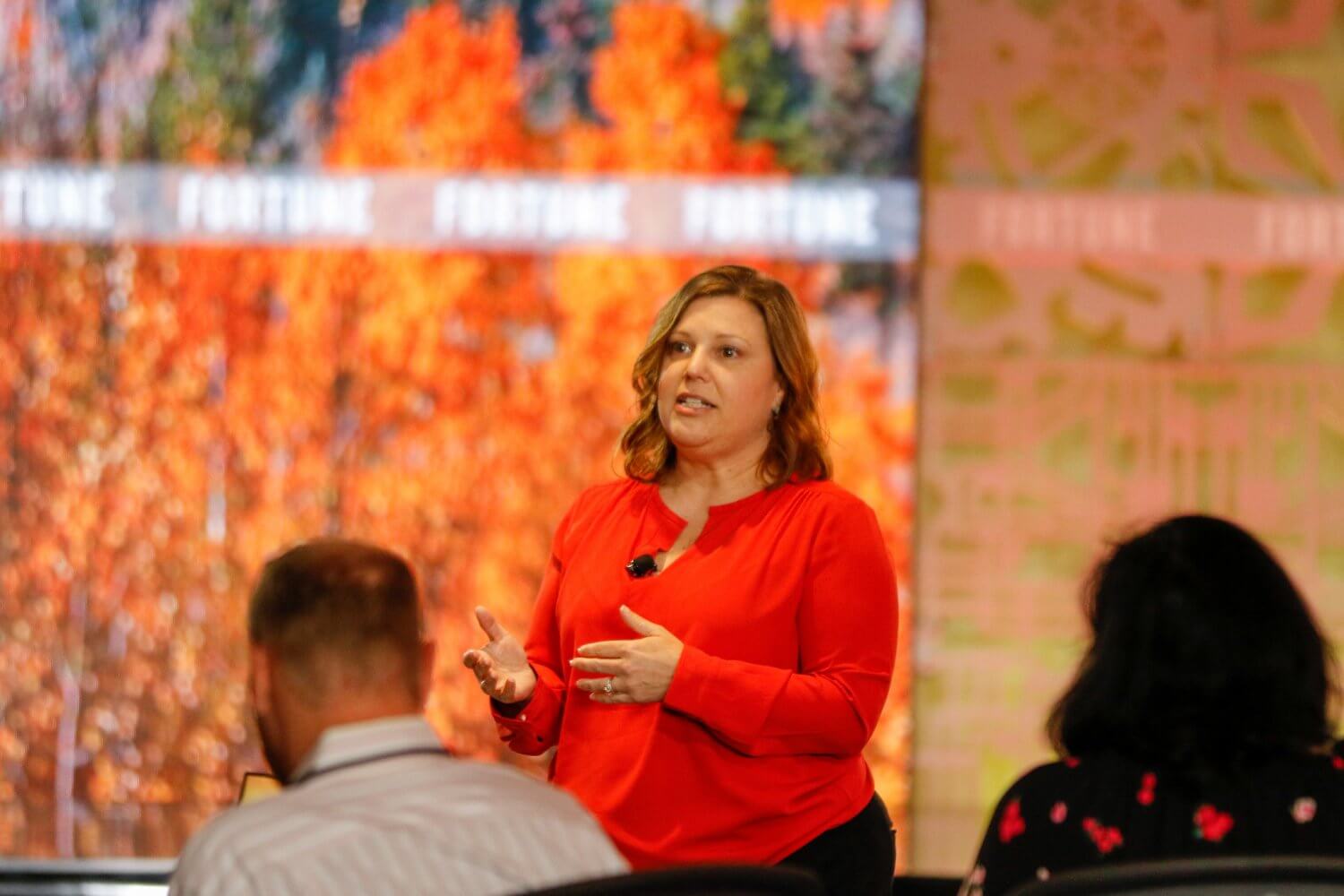FORTUNE Magazine’s annual Brainstorm Tech conference gathers the world’s top technology and media leaders, entrepreneurs, innovators, and visionaries to explore the trends that are changing the future of tech and business.
At the FORTUNE Brainstorm Tech conference, Internet Association’s Vice President and Associate General Counsel Elizabeth Banker participated in a town hall titled “Should Tech Be Regulated.” The town hall was led by Marketplace host Kai Ryssdal and featured other participants including Senior Research Fellow in Regulatory Policy at the Institute for Economic Freedom at the Heritage Foundation Diane Katz, Chief External Engagement Officer at Waymo Tekedra Mawakana, Legal Director at the Electronic Frontier Foundation’s Corynne McSherry, and Professor of Entrepreneurship and Finance at the University of Chicago Booth School of Business Luigi Zingales.
The town hall began with the relevant issue of data privacy and the role of government in regulating tech and internet companies. IA’s Elizabeth Banker opened the session by emphasizing the need for economy-wide federal privacy legislation. Internet companies believe Americans deserve a unified, comprehensive privacy law that provides meaningful control over the data they provide to online and offline businesses, across every sector of the economy. Elizabeth noted that the lack of a federal privacy law has resulted in no clear standards for companies to follow or for consumers to understand. There is consensus among all stakeholders – including policymakers, industry, privacy advocates, and consumers – that federal privacy legislation should be a top priority for Congress.
Now is the best time for privacy legislation because it is really important for consumers to have a single nationwide standard, across all the sectors, states, online and offline situations where their personal information is used. They need consistent expectations. Only a federal law can give that.
IA’s VP & Associate General Counsel Elizabeth Banker

Discussion shifted to the appropriate role of technology companies and private institutions in moderating harmful content online. Elizabeth expressed that internet companies recognize the importance of being responsible actors and prioritizing the safety of individual users. Companies implement community standards to help eliminate hate speech, threats, and other unwanted content. The current discussion in the U.S. surrounding content moderation centers on the legal protections that enable internet companies to remove bad actors from platforms. She reiterated that the law being singled out by policymakers is actually what allows companies to make their platforms safer and moderate harmful content.
We keep hearing from users the ability to look at a rating of a driver of a ride sharing car, or place they are looking to rent, or a product they want to buy is really instrumental in their trust of those platforms. Allowing user reviews and that type of content to continue to flourish is really important.
IA’s VP & Associate General Counsel Elizabeth Banker

The town hall concluded with Elizabeth detailing the complexity associated with regulating content. It can be difficult for internet companies to identify speech that violates their community guidelines while ensuring that the internet remains a place for free expression. She ended the discussion by reiterating that now is the best time for Congress to introduce privacy legislation. It’s crucial for consumers to have a unified, national standard across all sectors of the economy. Internet users need consistent expectations, which only a federal law can provide. While the national conversation on privacy has progressed, there is more legislative work to be done.
Read more about IA’s positions on privacy, content moderation, and other policies here.










